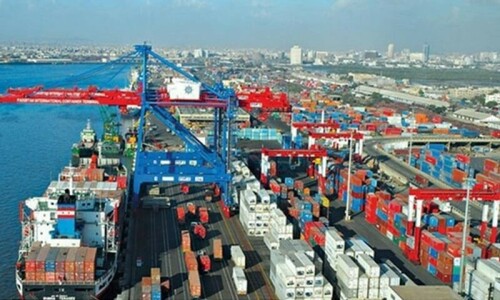DESPITE the rapid growth and changing pattern of corporate culture, family ownership and management refuses to go away, even in major business groups engaged in diverse economic activities that require a variety of professional expertise.
But to retain their grip or strong oversight over management, some major family groups have shaken off their old management style and institutionalised the family’s role in modern corporate structure.
In one case, it has been claimed that the group has gone through an arduous evolution to transform itself from a ‘family business’ into a dynamic ‘business family’ enterprise. For this, much investment has gone into education (including in foreign universities) of the new generation of family members, along with professional training on the job.
Yielding some key positions to outsiders who are treated equally as the shareholder in sharing work and responsibility, some family groups have recorded tremendous growth over time
The family mode of corporate governance is the inevitable course taken by these groups to manage their bulging size and diverse economic activities but handicapped by the limited number of family members qualified to handle the intricacies/challenges of different businesses.
Perhaps they have also taken into the recent global financial crisis for which the professional class as a whole came under severe criticism. Some even felt then that a family-owned and managed institution may not have taken the kind of risks that brought about the Great Recession.
While the dedicated ‘seth’ management culture played a pioneering role in the initial phase of the country’s industrialisation — facilitated and enabled by the infant industry argument — the torch has now been passed on to a new generation of family entrepreneurs. Yielding some key positions to outsiders who are treated equally as the shareholder in sharing work and responsibility, these groups have recorded tremendous growth over time.
Initial inquiries indicate that at least five leading business groups — headed by Yousuf H. Shirazi, Razzak Dawood, Ali Habib, Hussain Dawood and Babar Ali — have opted for institutionalising their families’ role in corporate governance.
A LUMS study on the evolution of the Atlas Group quotes Mr Saquib H. Shirazi as follows. “The group has gone through four evolutionary stages: the entrepreneurial stage; the entrepreneurial-plus-professional management stage; then from the family business to business family stage, in which a balance was struck between the owners and the professional management; and finally the institutionalisation stage, in which a Family Council (FC) and a Group Executive Committee (GEC) had been set up to tackle business and succession challenges.”
Elaborating, he said “first, our decisions in the FC are based on pragmatism. In any challenge/crisis, the FC follows three principles: unity, patience and dynamic decision-making, which is further objectively scanned through the GEC”.
Some of big family- managed groups thrown up during President Ayub Khan’s development decade have either gone into oblivion or have been split up, though some of the separated entities are doing well, as in the case of the Dawoods and the Habibs. For one reason or the other (some beyond their ambit), those like the Fancys, the Valikas and the Hysons were not able to move with the times.
However, the number of companies quoted on the country’s stock exchanges has fallen owing to a variety of factors, including excess capacity and the current preference for consolidation rather than business expansion.
But the family-managed firms are much more widespread. Nearly 65,000 firms or so (though many of them are defunct) are listed with the Securities and Exchange Commission of Pakistan, against just over 550 that are listed on the Karachi Stock Exchange. Given the current investment climate, many big groups also prefer to set up subsidiaries primarily with their own financial resources.
The corporate culture is also undergoing a change. There are very few flotations on the stock exchanges. Company managements, says one financial analyst, do not want to share their profits with the minority shareholders. The buying back of shares is another way to retain earnings within the group. And with the volatility in interest rates and the fluctuating financial charges, there is a growing trend to self-finance capital spending as much as possible.
One can still trace the lingering ‘seth’ culture in the pattern of corporate ownership. The concept of widening the industrial ownership through the capital market does not sell to big investors, and institutional trading in shares is on the surge. However, some companies reward the professionals working for them under stock option schemes. In a way, it is becoming an in-house affair.
An executive at a firm, which does borrow from banks, says his company’s profits are being squeezed and the debts with the going interest rates would make his business unviable. He adds that he cannot even think of getting into the hassles involved in getting his company listed on the stock exchange.
Published in Dawn, Economic & Business, August 10th, 2015
On a mobile phone? Get the Dawn Mobile App: Apple Store | Google Play
















































Dear visitor, the comments section is undergoing an overhaul and will return soon.